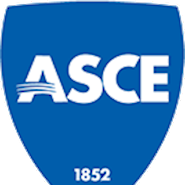John T. Christian, a geotechnical engineer with a global reputation in soil dynamics, earthquake engineering, geotechnical reliability, and computational mechanics, has died. He was 85.
Christian, Ph.D., P.E., NAE, D.GE, Dist.M.ASCE, pioneered the use of computer methods in geotechnical engineering. He co-authored the first general purpose computer program for the analysis of slope stability with circular and noncircular failure surfaces. He also co-authored the seminal book Numerical Methods in Geotechnical Engineering in 1977, and several others of that caliber followed.
As a practicing geotechnical engineer, he worked on projects involving earth dam evaluation and design, the evaluation of flow through porous media, nuclear power plants, solid waste landfills, foundation engineering, offshore facilities, mooring facilities, and pipelines. He performed geotechnical analyses for many on-site nuclear spent fuel storage facilities and for the stability of mining waste embankments.
Having graduated with three degrees from the Massachusetts Institute of Technology, Christian spent most of his career in the Boston area, but was born in Brooklyn, New York. While a boy, his family relocated to Brazil, where his father ran the telephone company.
In 1959 he met his future wife, Lynda, and their educational pursuits merged. Christian’s studies at MIT culminated with his civil engineering doctorate in 1966, and it was in encouraging Lynda’s education and career that he would learn to do so for later generations of engineering students.
Christian returned to MIT as a civil engineering professor from 1966 to 1973, after which he left for Stone & Webster Engineering Corporation in Boston. He retired as executive vice president in 1994. He then became a much-in-demand engineering consultant. He also served as distinguished professor of civil and environmental engineering at the University of Massachusetts Lowell, which took him from 2015 until this year.
In 1999, Christian was elected to the National Academy of Engineering, where he served as Section 4 (civil engineering) chair and spent time as a member of numerous committees. He became an ASCE Distinguished Member in 2001 and was the recipient of many professional honors and awards from ASCE, the Boston Society of Civil Engineers Section, and other organizations. He was honored with ASCE’s Karl Terzaghi Lecture in 2003, and the Geo-Institute Cross USA Lectureship in 2012-13.
Later in his career he was chair of the Engineering Accreditation Commission of the Accreditation Board for Engineering and Technology. A supporter of a more diversified curriculum, he told his students they needed to know how to communicate proposals effectively in English, not merely in mathematics.
In that spirit, Christian was broadly educated in the classics, art, history, mathematics, and other fields. He was known for being able to recite the names of all the signers of the Declaration of Independence.



